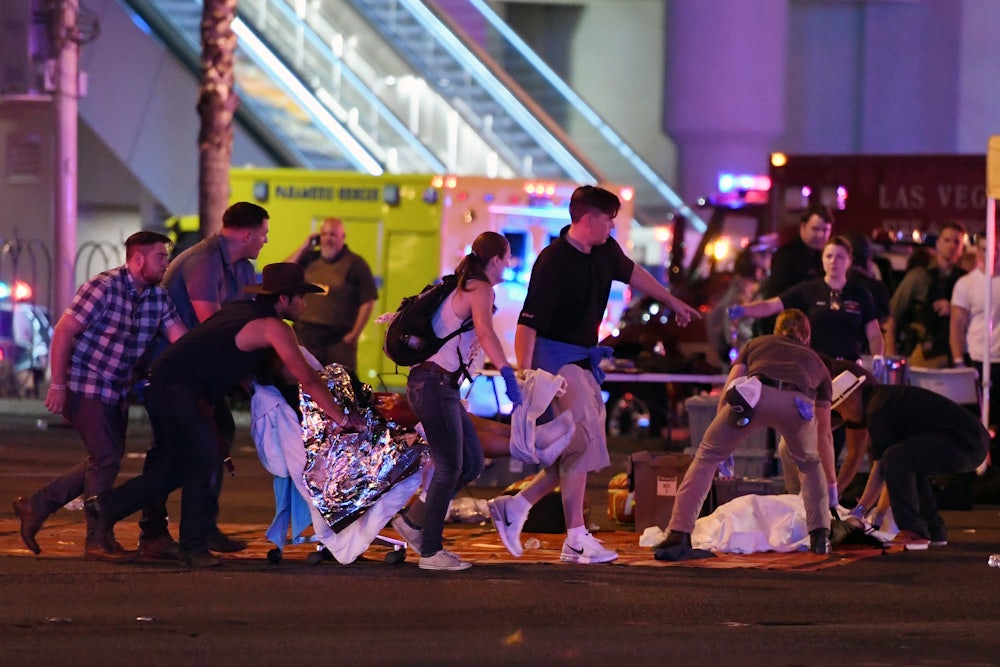Fifty people are dead after a shooter opened fire on a country music festival from the 32nd floor of the Mandalay Bay hotel and resort in Las Vegas. Over 200 people are wounded, many of them critically. University Hospital Center has said that it is treating at least 14 patients in critical condition. These numbers, which may grow, make this the deadliest mass shooting in American history. The next three on the list—the Pulse nightclub shooting in Orlando in 2016, which left 49 dead; Virginia Tech in 2007; and Sandy Hook in 2012, where 20 children and seven adults were massacred—all occurred in the last decade.
Little is known at this early stage about what happened or why. The suspected shooter, 64-year-old Stephen Paddock, was killed by police, who have also located a woman he reportedly traveled to Las Vegas with. Police have said they don’t know what Paddock’s “belief system” was, though “terrorism” has reportedly been ruled out. (This was obviously an act of terror; this just means that Paddock did not pledge allegiance to ISIS or another terrorist group.) Police have also said that they believe this was a “lone wolf” attack.
It is, in other words, both horrifying in scope and utterly familiar to any American who has lived through the last decade. The usual chorus of “thoughts and prayers” and “condolences” has begun, with the president leading the way:
My warmest condolences and sympathies to the victims and families of the terrible Las Vegas shooting. God bless you!
— Donald J. Trump (@realDonaldTrump) October 2, 2017
A kind of fatalism has infected the way we talk about these events, with “thoughts and prayers” being the only acceptable response from politicians. If Congress didn’t act after Sandy Hook—one of the most shameful moments in its history—why would it now?
There is nothing pre-ordained about what happened in Las Vegas, or in Orlando or Blacksburg or Sandy Hook. These were not mysterious events that were cast down upon us by a vengeful or indifferent god. They happened in America, a country where gun massacres are disturbingly common and where the government has done shockingly little to curb them. If this was any other kind of outbreak, we would be demanding answers and there would be inquiries at every level. If Paddock was a member of ISIS, the president would be demanding that we close our borders. But he’s just another guy with a high-powered rifle.
President Trump has not yet dealt with a tragedy like this. But nothing in Trump’s life, either before he became president or since he has entered the West Wing, suggests he will be a transformative president on this issue.
